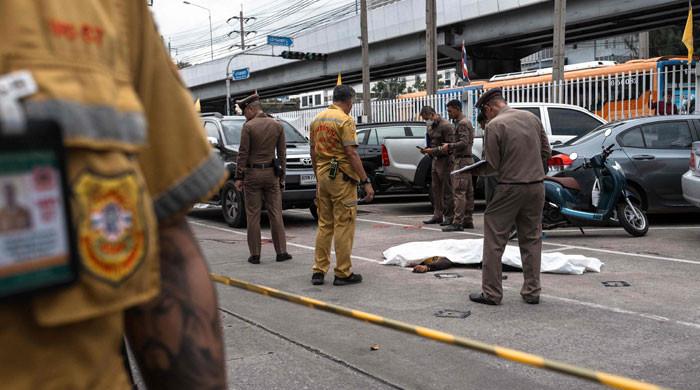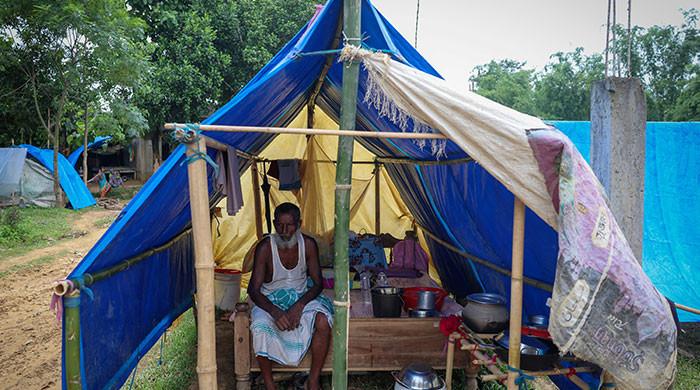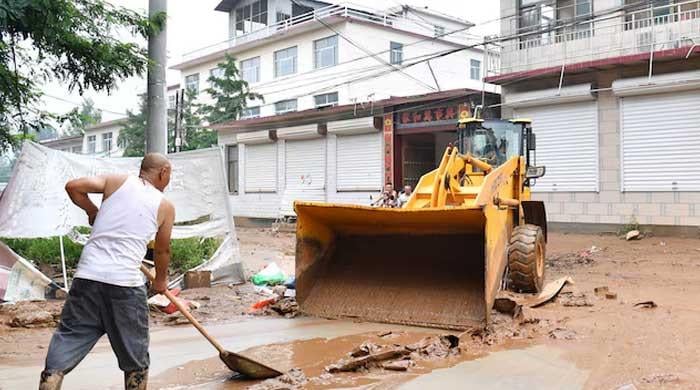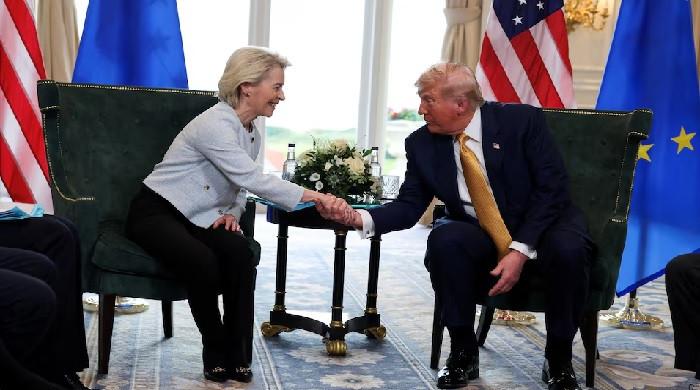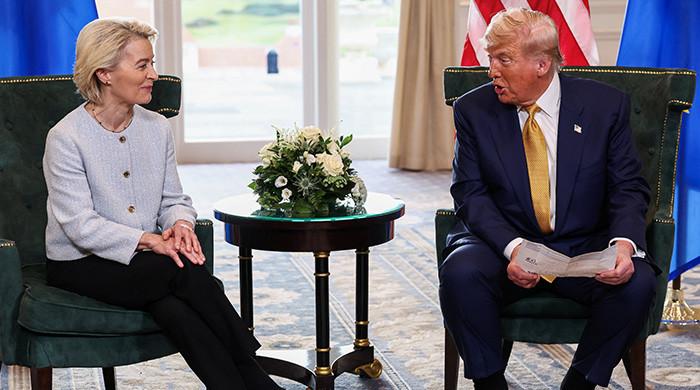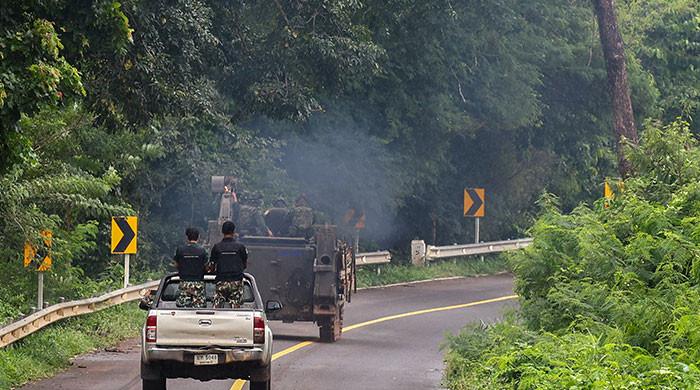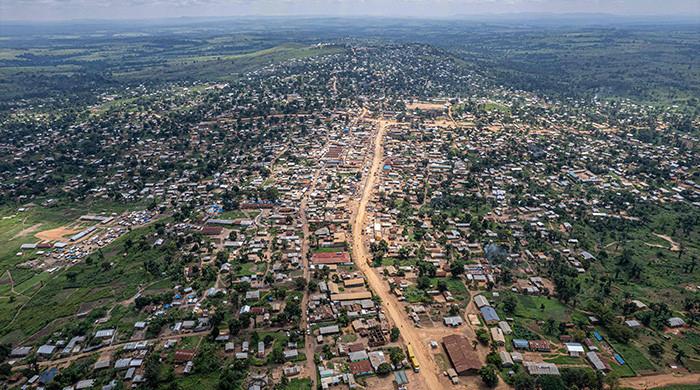Saudi Arabia, UAE shorten Friday sermon time amid heatwave
Saudi Aarbia reduces Friday sermon time to 15 minutes, while UAE shortens it to 10
June 28, 2024
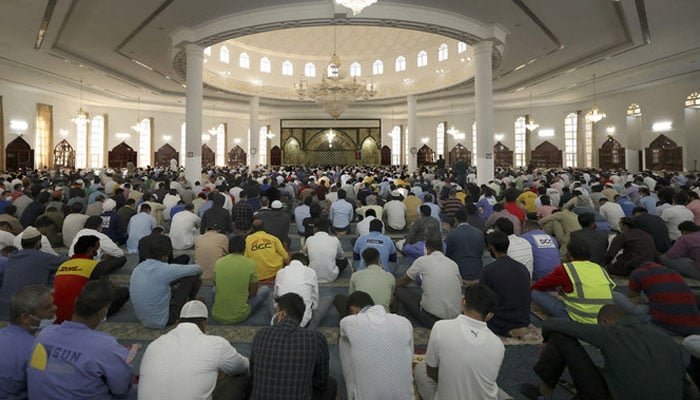
The authorities in Saudi Arabia and the United Arab Emirates have shortened the duration of the Friday sermon owing the impact of extreme heatwave in both countries.
In Saudi Arabia, where over 1,300 people died due to heatwave during the recent Hajj pilgrimage, the duration of the Friday sermon and prayer has been reduced to 15 minutes at the Two Holy Mosques.
The order is already being implemented from June 21 and will last until the "end of the current summer season", reported the Saudi Gazette.
"The directive also includes making the duration of time between first call for prayer (adhan) and second call for prayer 10 minutes by delaying the time of the first call for prayer," the Saudi state news agency mentioned in a report.
According to the publication, the announcement was made by Sheikh Abdul Rahman Al-Sudais, head of the Presidency of Religious Affairs of the Grand Mosque and the Prophet’s Mosque.
Meanwhile, UAE's General Authority for Islamic Affairs, Endowments, Zakat (Awqaf) has mandated that Friday sermons be limited to ten minutes.
The Awqaf has directed imams of all mosques across the country to keep the Friday sermon short so that the total time taken up by sermon and Friday prayer does not exceed ten minutes.
The directive will come into effect today (June 28) and will remain implemented until early October, the Emirates News Agency reported.
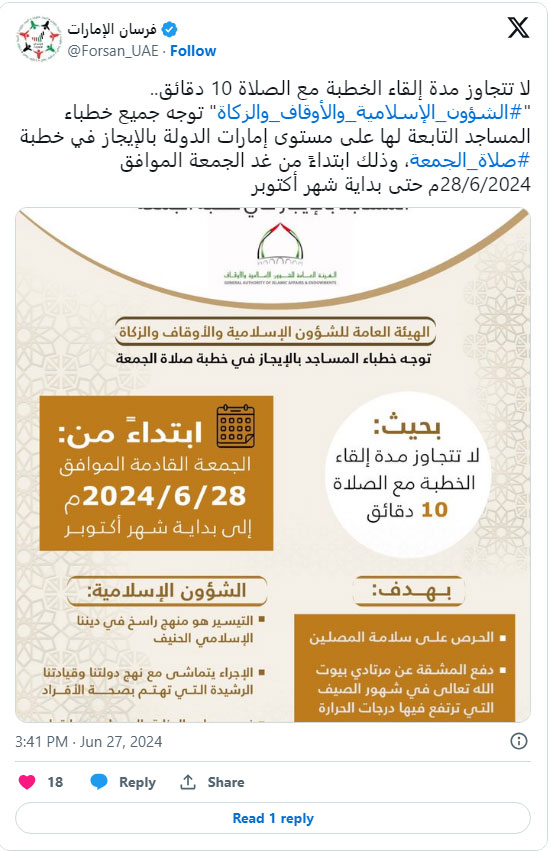
The directive is intended to protect worshippers from extreme summer temperatures, which have recently soared above 50 degrees Celsius. A spokesperson from Awqaf stated, “The reduction is in line with Islamic practices to safeguard community health.”
With temperatures in the UAE reaching between 48 and 50°C, the initiative is meant to protect worshippers from excessive heat during the peak summer months.
The country witnesses peak summer temperatures in July and August, with the summer months officially lasting from June to September.




